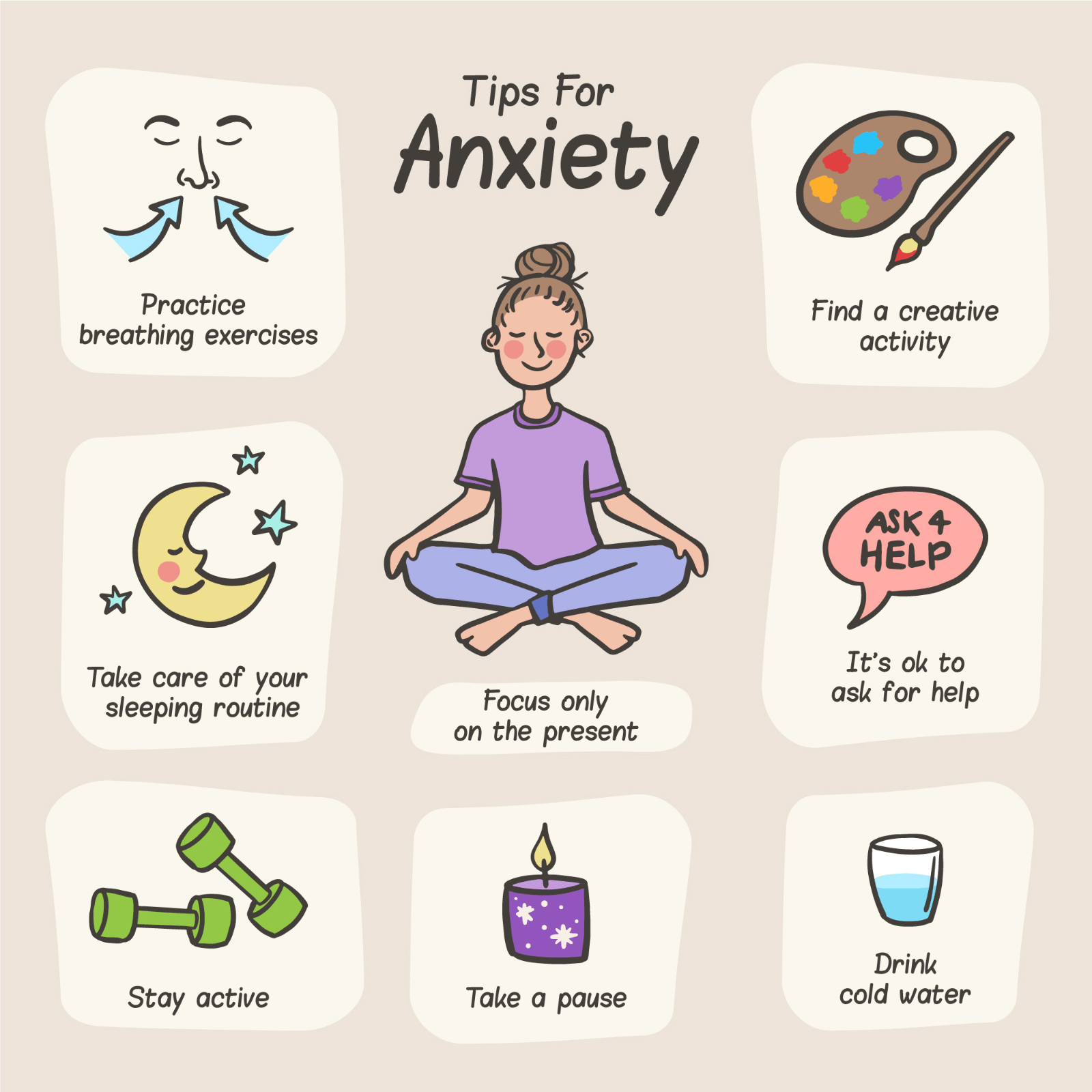
Poor” width=”474″ height=”474″>
Effective Ways to Manage Stress and Anxiety
Stress and anxiety are increasingly common in today’s fast-paced and demanding world. They can negatively impact our mental, emotional, and physical well-being if left unmanaged. Fortunately, there are several effective strategies individuals can employ to effectively cope with stress and anxiety.
1. Regular Exercise
Physical activity has been proven to be an effective stress and anxiety reducer. Engaging in regular exercise releases endorphins, which are natural mood enhancers. Exercise can also distract the mind from worries and promote better sleep, helping to alleviate stress and anxiety symptoms.
2. Practice Mindfulness
Mindfulness involves focusing one’s attention on the present moment without judgment. By practicing mindfulness, individuals can learn to let go of worries about the past or future, which contribute to stress and anxiety. Techniques such as deep breathing exercises, meditation, and yoga can enhance mindfulness and help manage stress and anxiety effectively.
3. Maintain a Healthy Diet
What we eat can impact our mental well-being. A balanced diet that includes plenty of fruits, vegetables, whole grains, and lean proteins can support brain function and improve mood. Limiting the intake of caffeine, alcohol, and processed foods can also help reduce stress and anxiety levels.
4. Get Sufficient Sleep
Lack of sleep can exacerbate stress and anxiety symptoms. It is crucial to establish a regular sleep schedule and practice good sleep hygiene. This includes creating a relaxing bedtime routine, keeping the bedroom environment conducive to sleep, and avoiding electronic devices before bed.
5. Socialize and Seek Support
Sharing our concerns and feelings with trusted friends, family members, or support groups can help reduce stress and anxiety. Connecting with others provides a sense of belonging and support, allowing individuals to gain different perspectives on their problems and find solace in knowing they are not alone.
6. Time Management
Poor time management can contribute to increased stress and anxiety. By prioritizing tasks, setting realistic goals, and delegating tasks when possible, individuals can better manage their time and reduce feelings of being overwhelmed.
7. Engage in Relaxation Techniques
Practicing relaxation techniques can help reduce stress and anxiety levels. This may involve deep breathing exercises, progressive muscle relaxation, listening to calming music, or engaging in hobbies that promote relaxation and enjoyment.
8. Avoid Perfectionism
Perfectionism often leads to increased stress and anxiety as individuals strive for unrealistic standards. Accepting imperfections and focusing on progress rather than perfection can alleviate unnecessary pressure and promote a healthier mindset.
9. Seek Professional Help
If stress and anxiety become overwhelming and interfere with daily life, seeking professional help is essential. Mental health professionals can provide valuable support, guidance, and therapies tailored to the individual’s specific needs.
In Conclusion
Managing stress and anxiety is crucial for maintaining overall well-being. By incorporating these effective strategies, individuals can better cope with the demands of daily life, improve their mental health, and lead a more balanced and fulfilling life.

